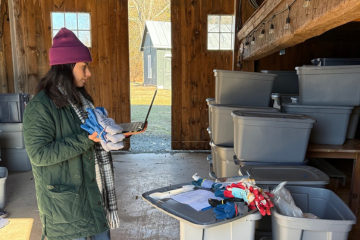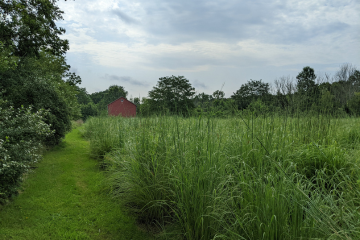(The following is a Letter to the Editor distributed to local media for publication.)
EDITOR: In many places across New Jersey, failing and outdated water infrastructure threatens the public’s health. Most New Jerseyans are aware of the dangers posed by lead pipes and urban sewer systems that overflow during heavy storms.
But few people – even our decision makers in Trenton – realize that there are serious problems with water infrastructure in many rural areas.
As policy director for the nonprofit Raritan Headwaters Association (RHA), I recently testified before the New Jersey Senate Environment and Energy Committee, which is preparing to make recommendations on how to spend state and federal infrastructure improvement funds.
RHA’s mission is to protect clean water in the Raritan Headwaters, a 470-square mile region in Hunterdon, Somerset and Morris counties. The Raritan River, a source of drinking water for 1.8 million New Jersey residents, literally starts in our streams, ponds and wetlands.
Any contamination in the headwaters of the Raritan River has impacts felt far downstream. That’s why it’s critical to public health to address infrastructure problems at the source of the Raritan.
Four out of five residents of the Upper Raritan Watershed get their drinking water from privately-owned wells, and most dispose of their household wastewater through septic systems. This generally works fine on large lots, but not so well on small properties.
The watershed includes many historic mill towns with houses clustered along riverbanks. For example, the borough of Califon has many homes built in the flood plain of the South Branch of the Raritan. Flood plains and septic systems are a bad pairing for clean water!
Then there’s the historic village of Oldwick in Tewksbury Township, another community that needs help with its water infrastructure. Oldwick’s antiquated wastewater system consists of a “settling pond” where sewage is “treated”. Solids remain, while liquids seep into the ground, eventually draining into the Lamington River. This infrastructure may have been state-of-the-art technology decades ago, but it’s woefully inadequate now. Like much of our state, Oldwick needs and deserves better wastewater infrastructure.
My message to the Senate Environment Committee was that all New Jersey communities – urban, suburban and rural – deserve clean water and the infrastructure necessary to provide it.
It may be hard to tell by looking, but within the 38 municipalities in our watershed, there are 10 “overburdened” communities as defined by the New Jersey Environmental Justice Act.
The Raritan Headwaters region needs funds for testing and rehabilitating contaminated drinking water wells, and for inspecting, testing and replacing faulty septic systems. Ideally, many malfunctioning septic systems would be replaced with small community wastewater treatment plants. Building mounded septic systems in a flood plain isn’t a solution – it’s ineffective and only exacerbates flooding.
Please ask your legislators not to overlook rural communities when deciding how to divvy up infrastructure improvement funds. Everyone needs clean water, and clean water begins in “upstream” communities.
BILL KIBLER
Policy Director, Raritan Headwaters Association
Bedminster, N.J.



